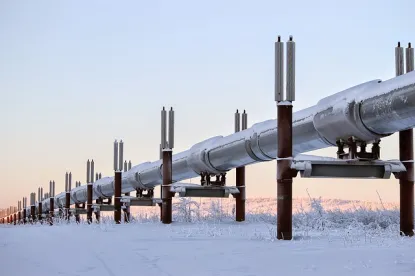This is an update discussing a recent development of the Nationwide Permit 12 case discussed in our April 22 article on New Holdup for Pipelines — US District Court Judge Vacates Nationwide Permit.
On April 28, 2020, Judge Brian Morris of the US District Court for the District of Montana granted a motion for expedited briefing of a motion to stay filed the day before by the US Department of Justice, on behalf of the US Army Corps of Engineers (Corps), et al. (Federal Defendants). In the same ruling, Judge Morris also denied a request to administratively stay portions of his Order signed on April 15, 2020 (the Order) that had national implications until he rules on the motion to stay. Not addressed by the court in its April 28 ruling was the Federal Defendants’ request for the court to rule on the motion to stay no later than May 11, 2020. In the motion to stay and the motion to expedite, the Federal Defendants indicated that if the court did not rule or otherwise grant relief from the injunction by May 11, 2020, a notice of appeal to the Ninth Circuit would be filed the next day.
The motion to stay filed on April 27, 2020, requests the court to stay portions of the Order that vacated Nationwide Permit 12 (NWP 12) (the Vacatur) and the portion that enjoined the Corps from issuing any further dredge and fill activities under NWP 12 (the Injunction). The motion to stay also requested that, at a minimum, the court stay the Vacatur and Injunction so that they do not apply to any projects outside of the Keystone XL pipeline.
The Federal Defendants’ main argument in the motion to stay is that the Order went beyond what was requested by the plaintiffs, who were focused on the Keystone XL pipeline. One example cited in support of this argument was the plaintiffs’ opposition to the state of Montana’s motion to intervene, in which the plaintiffs state they “have not sought to have NWP 12 broadly enjoined; rather, they seek narrowly tailored relief to ensure adequate environmental review of oil pipelines, especially Keystone XL.”
Another principal argument by the Federal Defendants is that the court did not provide a meaningful opportunity to oppose the Vacatur and Injunction and that such remedy fashioned by the court is not in the public interest since it goes beyond oil pipelines and affects utility projects. In support of this argument, the Federal Defendants stated that “thousands of projects undertaken across the country to provide needed and important services to innumerable segments of the public. Neither the proponents of those projects, nor the members of the public they serve, are parties in this case.” Other arguments pushed by the Federal Defendants are that the court fashioned this remedy without any analysis or record to support the remedies granted, the plaintiffs lack standing for a general injunction of NWP 12 across the board, and the court erred in its conclusion that the Corps of Engineers’ “no effect” determination under its Endangered Species Act review was arbitrary and capricious.
The Corps estimates that there are approximately 5,500 preconstruction notices currently before its various district offices awaiting verifications. If those preconstruction notices were to be processed as standard individual permits, it would take 1,250 regulatory project managers one and a half years to process those preconstruction notices and those expected during the remainder of 2020.





 />i
/>i

